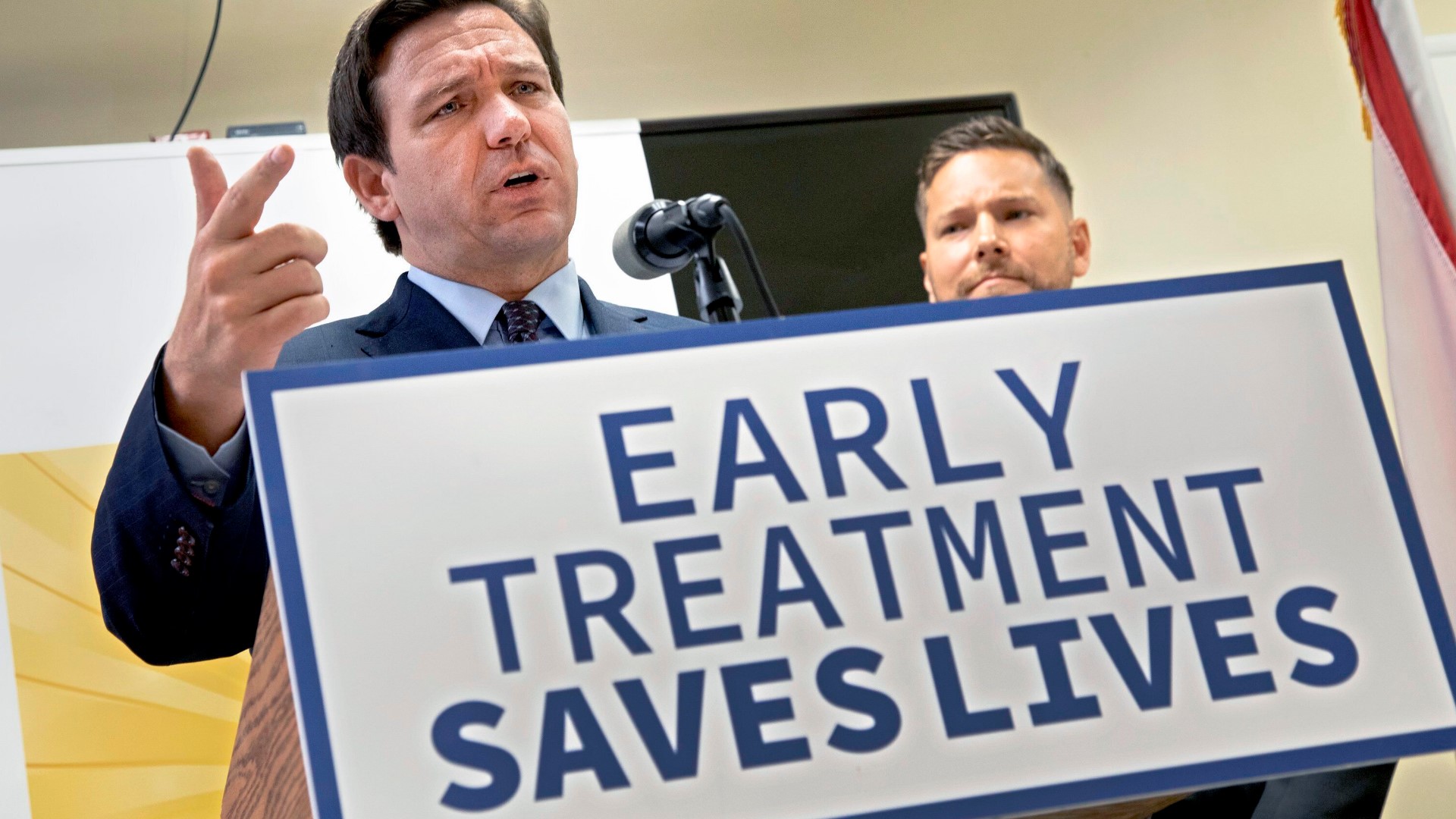WASHINGTON — In places like Texas and Florida, governors have set up monoclonal antibody stations to help combat the COVID pandemic. Some people call these antibody infusion treatments simply “Regeneron,” which is one of the companies authorized to make them.
Florida Governor Ron DeSantis held a press conference Wednesday touting the therapy with a banner that read "early treatment saves lives."
A very similar statement was made by Dr. Anthony Fauci during a White House press conference, where he said clinical trials have shown that "early treatment with anti-SARS-CoV-2 monoclonal antibodies can reduce the risk of COVID-19 hospitalization or death by 70-85%."
"So, bottom line is —this is a very effective intervention for COVID-19," Fauci said. "It is underutilized, and we recommend strongly that we utilize this to its fullest."
With the emergence of pop-up monoclonal antibody stations, some people are using social media as a platform to remind folks that its not a replacement for the vaccine. But not everyone is so sure.
A Verify viewer asked the team, "Why does a person who has has been fully vaccinated need a booster shot when there is Regenaron (antibodies) as a therapy?" Let's verify.
THE QUESTION
Can you get Regeneron or another brand of monoclonal antibody treatment instead of getting the COVID-19 vaccine? Is it a substitute for getting the shot?
OUR SOURCES
- Dr. William Schaffner, professor of medicine at Vanderbilt University Medical Center
- Dr. Namandje Bumpus, professor and the director of the Department of Pharmacology and Molecular Sciences at Johns Hopkins University
- U.S. Food & Drug Administration - REGEN-COV (Casirivimab and Imdevimab) emergency use authorization documents, August 10 press release
THE ANSWER
No.
WHAT WE FOUND
In July, the FDA authorized Regeneron's monoclonal antibody treatment for emergency use to treat those with mild to moderate symptoms of COVID-19 in patients 12-years-old and older who are not admitted to the hospital and are high risk.
It's a combination of two antibodies, Casirivimab and Imdevimab, which specifically targets the spike protein of SARS-CoV-2. You get the treatment from an IV, and it should be given as soon as possible after testing positive and within 10 days of when symptoms began.
“The notion is that this monoclonal antibody will stick on to the virus and prevent it from multiplying further in your body, thus preventing the development of more serious disease," Dr. William Schaffner explained. "It is not a substitute for a vaccine.”
In August, the FDA revised Regeneron’s Emergency Use Authorization and said the therapy could now be used AFTER a high risk individual has been exposed to the virus. The FDA was very clear that the therapy should not be used as a precaution before COVID exposure.
In that announcement, the FDA specifically says that monoclonal antibody treatment following exposure is “not a substitute for vaccination against COVID-19.”
Dr. Bumpus explained that beyond a certain window, Regeneron will not protect you against catching the virus, but the vaccine does just that.
"People may not always know when they were exposed or how long they have been infected," Dr. Bumpus said.
She says post-exposure monoclonal antibody therapy is a "valuable tool," but that it "in no way is it a substitute for vaccination."
So we can Verify that no, monoclonal antibody treatments like Regeneron are not a substitute for getting vaccinated against COVID-19.

